-
Sweden's top epidemiologist Anders Tegnell said there was room for improvement in the country's controversial softer approach to curbing the spread of the novel coronavirus.
-
India's coronavirus infections surpassed 200,000 after cases jumped by 8,909 on Tuesday in one of the highest single-day spikes.
-
More than 6.3 million coronavirus cases have been confirmed around the world, according to data from Johns Hopkins University. More than 380,000 people have died, including more than 106,000 in the US. More than 2.7 million have recovered from the disease.
Here are the latest updates:
Wednesday, June 3
11:15 GMT Novavax partners with contract drugmaker for COVID-19 vaccine manufacturing
US biotech firm Novavax Inc has entered into a deal with contract drugmaker AGC Biologics to manufacture its experimental COVID-19 vaccine.
An add-on component of Novavax's vaccine that could help enhance the immune response against the coronavirus would be manufactured by privately held AGC Biologics, the contract drugmaker said.
11:00 GMT - Spain seeks to open up to some foreign tourism from June 22
Spain is working on starting to gradually open up to tourists from countries considered more secure in the fight against COVID-19 from June 22, a tourism ministry spokesman has said.
Madrid has previously set July 1 as the date to reopen its borders to tourism, which accounts for some 12 percent of the country's economy, after a months-long shutdown due to the outbreak.
Separately Foreign Minister Arancha Gonzalez Laya tweeted that Germany would lift a recommendation to its nationals to avoid travelling to Spain as soon as Spain lifts restrictions on travel from abroad.
He hablado con @HeikoMaas Ministro de Asuntos Exteriores de 🇩🇪 hemos acordado que en cuanto 🇪🇸 permita el ingreso de turistas en su territorio, #Alemania levantará la recomendación de no viajar a España #reciprocidad @MAECgob @AuswaertigesAmt @EmbEspAlemania
— Arancha González (@AranchaGlezLaya) June 3, 2020
Translation: "I have spoken with @HeikoMaas, German Foreign Minister, we have agreed that as soon as Spain allows tourists to enter the territory, #Germany will lift the recommendation not to travel to Spain," Foreign Minister Arancha Gonzalez Laya wrote on Twitter.
10:45 GMT - EU classifies coronavirus as mid-level threat to workers
The European Commission has decided to classify the new coronavirus as a mid-level threat to workers, a move that allows employers in the EU to apply less stringent safety measures in the workplace than if the virus was deemed a high risk.
The decision may have wide economic and health implications as it could have an impact on companies' costs in fully restarting business activity and workers' safety.
Under EU rules, the new coronavirus has been classified as a level-3 hazard in a four-level risk list in which level 4 is the highest.
|
Parts of Europe ease coronavirus curbs as new infections drop |
10:30 GMT - Austria lifting coronavirus border checks with all neighbours bar Italy
Austria is lifting all coronavirus-related border restrictions including quarantines for new arrivals from all of its neighbouring countries except Italy as of Thursday, Foreign Minister Alexander Schallenberg has said.
"We will lift all the coronavirus-related border and health checks in relation to seven bordering countries - those are Germany, Liechtenstein, Switzerland, Slovakia, Slovenia, the Czech Republic and Hungary. We are thereby returning to the pre-corona situation regarding these countries," he told in a news conference.
10:15 GMT - Putin declines British invitation to take part in coronavirus summit: Kremlin
Russian President Vladimir Putin does not plan to take part in an online summit on a possible coronavirus vaccine being organised by the British government this week, Kremlin spokesman Dmitry Peskov has said.
Putin received an invitation to take part in the summit from British Prime Minister Boris Johnson last week, the Kremlin had said.
Scheduled to take place on June 4, the Global Vaccine Summit 2020 is designed to mobilise resources needed to ensure universal availability of the vaccine against the novel coronavirus.
10:00 GMT - Sweden should have done more to combat coronavirus, health chief says
Sweden should have done more to combat the coronavirus and prevent a much higher national COVID-19 death rate than in neighbouring countries, the man behind the Public Health Agency's pandemic strategy has said.
Nearly 4,500 Swedes have died in the outbreak, a higher mortality rate than in Denmark, Norway and Finland, and criticism has been growing over the government's decision not to impose lockdown measures as strictly as elsewhere in Europe.
"If we were to run into the same disease, knowing exactly what we know about it today, I think we would end up doing something in between what Sweden did and what the rest of the world has done," Anders Tegnell, the chief epidemiologist at the Public Health Agency, said
"Yes, I think we could have done better in what we did in Sweden, clearly."
09:30 GMT - Germany to lift travel ban for EU, Schengen countries and UK
Germany will lift a travel ban for European Union member states plus Britain, Iceland, Norway, Liechtenstein and Switzerland from June 15 as long as there are no entry bans or large-scale lockdowns in those countries, the foreign minister has said.
Speaking to reporters Heiko Maas said all countries concerned met those criteria except Norway due to an entry ban and Spain, where he said parliament was deciding whether to extend an entry ban.
09:00 GMT - US embassy declines UAE offer to test staff for COVID-19: FT
The United Arab Emirates (UAE) has offered the US embassy hundreds of tests to screen embassy staff, but the gesture was "politely declined," due to privacy concerns, the Financial Times reported.
According to a US official, the offer raised a "red flag," due to the involvement of Chinese firms and technology.
The UAE testing facility opened in late March by a joint venture between Chinese genomics company BGI and artificial intelligence group G42, which has links to the Abu Dhabi ruling family.
08:45 GMT - Air Arabia lays off more staff due to COVID-19 impact
Air Arabia, the only listed carrier in the United Arab Emirates, has made further job cuts due to the business impact of COVID-19, a spokesman has said.
The Sharjah-based airline, which has about 2,000 employees, did not say how many employees had been affected. It laid off 57 employees in May.
The latest job cuts were a "last alternative" after the airline took a series of steps in past months to protect jobs, the spokesman said, without elaborating.
08:30 GMT - Coronavirus pushes up German unemployment
The coronavirus outbreak has contributed to another rise in unemployment in Germany in May.
Some 169,000 people were added to the jobless list between April and May, with the total number of unemployed now at 2.8 million, according to official figures.
08:15 GMT - Russia's coronavirus case tally passes 430,000
Russia has reported 8,536 new cases of the novel coronavirus, bringing its nationwide tally to 432,277, the third highest in the world.
The death toll reached 5,215 after the authorities said they had recorded another 178 deaths from the virus in the past day.
08:00 GMT -Kyrgyzstan to resume domestic flights, allow Chinese charter flights
Kyrgyzstan will resume domestic flights and bus circulation between its provinces and allow charter flights from China this month to bring in staff for numerous Chinese investment projects, the Bishkek government said.
Kyrgyzstan will also resume domestic flights and public transit between its provinces from June 5.
Employees of Chinese companies will be tested for novel coronavirus before and after the flights, Deputy Prime Minister Erkin Asrandiyev said.
07:45 GMT - NZ sport set for fans boost with end to COVID-19 curbs in sight
Professional sport in New Zealand could welcome fans back to stadiums as early as next week with the government set to decide whether to lift all social distancing restrictions imposed to due the COVID-19 pandemic.
New Zealand Prime Minister Jacinda Ardern will decide on Monday whether the country is ready to bring its alert system down to level 1, which would lift limits on mass gatherings that were imposed to curb the spread of the novel coronavirus.
That would open the door for fans to attend the opening round matches of New Zealand's "Super Rugby Aotearoa" tournament starting on June 13.
|
NZ rugby players return to training under strict health measures (02:13) |
07:30 GMT - Myanmar court denies bail to Canadian preacher who defied virus ban
A Myanmar court has denied bail to a Canadian Christian preacher who held church services in defiance of a ban on gatherings to prevent the spread of the coronavirus that led to infections in dozens of people including himself.
David Lah, a Canadian of Burmese origin, and another man, Myanmar national Wai Tun, are facing up to three years in prison under a disaster management law over church services held in the city of Yangon in early April.
07:15 GMT - Lufthansa reports net loss of $2.1bn
German airline giant Lufthansa has said it will undergo "far-reaching" restructuring as it posted a first-quarter net loss of 2.1 billion euros ($2.3bn), hammered by the coronavirus pandemic.
"Global air traffic has come to a virtual standstill in recent months. This has impacted our quarterly results to an unprecedented extent.
"In view of the very slow recovery in demand, we must now take far-reaching restructuring measures to counteract this," chief executive Carsten Spohr said in a statement.
07:00 GMT - Italy reopens to tourists from Europe
Italy has reopened to travellers from Europe, three months after the country went into coronavirus lockdown, with all hopes pinned on reviving the key tourism industry as the summer season begins.
Italy was the first European country to be hit hard by the coronavirus and has officially reported more than 33,000 deaths. It imposed an economically crippling lockdown in early March and has since seen its contagion numbers drop off dramatically.
|
Shops, cafes reopen as Italy lifts coronavirus restrictions (3:01) |
06:45 GMT - Study shows coronavirus antibodies in 5.5 percent of Dutch blood donors
A study of Dutch blood donors has found that around 5.5 percent of them have developed antibodies against the new coronavirus, blood donation firm Sanquin revealed.
The study, conducted among 7,000 donors between May 10 and 20, gives an indication of what percentage of the Dutch population may have already had the disease.
A similar study in April showed antibodies in 3 percent of Dutch blood donors.
06:30 GMT - Pakistan provincial minister dies from coronavirus
Ghulam Murtaza Baloch, the Sindh provincial minister for human settlement in Pakistan, has died after contracting the novel coronavirus.
Cases in the South Asian country have been spiking as the government has lifted restrictions on public gatherings and businesses.
On Tuesday, the country saw its highest single-day spike in cases for the second consecutive day, with 4,065 new cases taking the country's tally to 80,463.
|
Hundreds of Pakistan children under 10 in Sindh with COVID-19 (2:22) |
06:15 GMT - India's coronavirus cases cross 200,000
India's coronavirus infections have crossed 200,000, the health ministry said, and a peak could still be weeks away in the world's second most populous country.
Cases jumped by 8,909 over the previous day in one of the highest single-day spikes, taking the tally to 2,07,615. Six other nations, from the United States, to the United Kingdom and Brazil, have a higher caseload.
More:
Hi, this is Elizabeth Melimopoulos in Doha taking over the live updates from my colleague Kate Mayberry in Kuala Lumpur.
05:30 GMT -
I'll be handing over the blog to my colleagues in Doha shortly. Before I go, a quick recap of what happened over the past few hours. Brazil has reported a record number of coronavirus deaths for a single day; overall, it has the fourth-highest number of deaths in the world with little sign the outbreak is easing.
There have also been a couple of interesting developments in scientific studies - the Lancet is conducting an audit of the supporting data in a recent study on the controversial drug hydroxychloroquine, while scientists whose funding was pulled by the US have published the preliminary findings on bats and coronaviruses.
And in today's "positive" news it looks like New Zealand could lift the last of its coronavirus restrictions as early as next week. That means a return to normal life although New Zealanders still will not be able to travel overseas because borders will remain closed.
05:10 GMT - Recession alert: Australian economy shrank in the first quarter
Australia's economy shrank in the first three months of 2020, setting the country up for its first technical recession in 30 years.
Official data shows the economy contracted 0.3 percent in the three months ended March 31, compared with the last three months of 2019, the first decline in nine years.
Read more on that story from our AJImpact team here.
04:20 GMT - Mumbai braces for cyclone as coronavirus cases top 200,000
At least 100,000 people, including coronavirus patients, have been moved out of the path of Cyclone Nisarga, which is threatening India's west coast and the city of Mumbai.
The storm is expected to make landfall on Wednesday afternoon, just south of Mumbai, which has not been hit by a cyclone in 70 years.
The Health Ministry said the number of coronavirus cases in the country has exceeded 200,000 with a rise of 8,909 cases in a single day.
"We are very far away from the peak," said Dr Nivedita Gupta of the Indian Council of Medical Research.
Mumbai: #CycloneNisarga has intensified further, eye diameter has decreased to about 65 km during the past hour; visuals from Marine Drive. #Maharashtra pic.twitter.com/1dSuMRjhfm
— ANI (@ANI) June 3, 2020
03:55 GMT - New Zealand could return to 'normal life' next week
People in New Zealand could return to "normal life" as early as next week with the end of social distancing measures.
Prime Minister Jacinda Ardern says she will decide on Monday whether to reduce the country's alert level to one, more than two months after she imposed a strict, level four, lockdown. The decision will depend on whether more recent relaxations have led to an increase in coronavirus cases.
Even if the country does move to level one, it has no plans to reopen its borders. New Zealand has reported only one active case of coronavirus and no deaths for 12 days.
03:10 GMT - South Korea approves import of remdesivir
South Korea's Ministry of Food and Drug Safety has approved a health ministry request to import the anti-viral drug remdesivir to treat COVID-19.
02:50 GMT - Comprehensive study of bat viruses homes in on Rhinolophus
Science magazine says a group of scientists working on bat viruses have published the most comprehensive analysis of such viruses ever completed, singling out one genus - Rhinolophus (Chinese horseshoe bats) - as crucial to the evolution of SARS-related coronaviruses.
The research examines the partial genetic sequences of 781 coronaviruses found in bats in China, and while it could not pinpoint the origin of SARS-CoV-2, which causes COVID-19, co-author Peter Daszak said it found Rhinoloplus was a "major reservoir" of SARS-related coronaviruses.
Daszak is the president of EcoHealth Alliance, whose research grant to study the bats with colleagues in China was pulled by the US National Institutes of Health last month.
A preprint of the study was posted to bioRxiv.
An international team of scientists whose funding for research on bat coronaviruses was recently yanked by the U.S. government has published what it calls the most comprehensive analysis ever done of such viruses. https://t.co/0b5c4sAq6G by @sciencecohen and @kakape
— Martin Enserink (@martinenserink) June 2, 2020
02:00 GMT - UK government says traveller quarantine crucial to stop second wave
The UK government says the 14-day traveller quarantine it plans to introduce on June 8 is crucial to stop a second wave of coronavirus hitting the country.
Home Minister Priti Patel and Transport Minister Grant Shapps outlined the plan - despite criticism from airlines, business groups and some members of their own party - in an article published in the Daily Telegraph late on Tuesday.
The ministers said travellers would be required to provide travel details and contact information, and there would be spot checks and fines to ensure compliance.
The quarantine will apply to all international arrivals, including citizens. The UK has the most deaths in the world from coronavirus, after the United States.
01:25 GMT - Malaysia locks down housing estate near Kuala Lumpur airport
Malaysia has imposed a "semi-enhanced" lockdown in two housing estates near the Kuala Lumpur International Airport (KLIA), according to Malaysiakini.
The two housing areas are surrounded by razor wire, and local health authorities will screen all residents for COVID-19 by Friday.
Malaysiakini said the move was believed to be linked to a cluster of 28 coronavirus cases among cleaners working at KLIA.
01:05 GMT - Bolivia feels coronavirus strain as cases exceed 10,000
Authorities in Bolivia are making door-to-door checks in regions with severe coronavirus outbreaks to try and stem the spread.
The landlocked country registered its first cases on March 10, and until May 21 had reached 5,000 cases. That number has since doubled, government data shows.
More on that story here.
00:00 GMT - Brazil sets another daily record for coronavirus deaths
Some 1,262 people in Brazil died from coronavirus in the 24 hours to Tuesday evening, the country's Health Ministry said.
It is another daily record for the South American country where the outbreak shows no sign of slowing down.
Brazil also confirmed 28,936 additional infections, bringing the total cases to 555,383. A total of 31,199 people in Brazil have died from coronavirus.
COVID-19 began in the country's wealthy neighbourhoods and large cities where there were links with international travellers, but it is now making its way to poorer and more isolated areas to devastating effect. You can read more on that here.
23:30 GMT (June 2) - Lancet raises new questions about hydroxychloroquine study
The Lancet has commissioned an independent audit of the data behind a study it published last month that found hydroxychloroquine increased the risk of death in COVID-19 patients.
The May 22 study was based on data provided by healthcare analytics firm Surgisphere and not a traditional clinical trial that would have compared hydroxychloroquine to a placebo or other medicine.
The editors of the British medical journal said serious scientific questions had been brought to their attention.
Several clinical trials into the use of the drug, including one by the WHO, were suspended after the paper was published. Hydroxychloroquine is usually prescribed for illnesses such as malaria or lupus, but has been trumpeted as a COVID-19 treatment by US President Donald Trump and other right-wing leaders.
----
Hello and welcome to Al Jazeera's continuing coverage of the coronavirus pandemic. I'm Kate Mayberry in Kuala Lumpur.
Read all the updates from yesterday (June 1) here.
"virus" - Google News
June 03, 2020 at 05:53PM
https://ift.tt/3csrlUP
Sweden admits virus response could have been better: Live updates - Al Jazeera English
"virus" - Google News
https://ift.tt/2OagXru

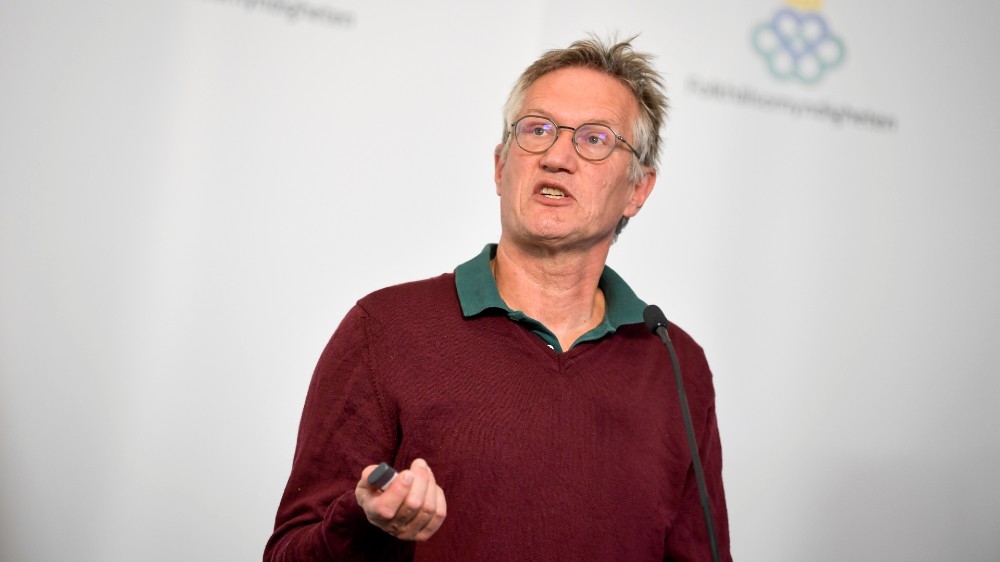
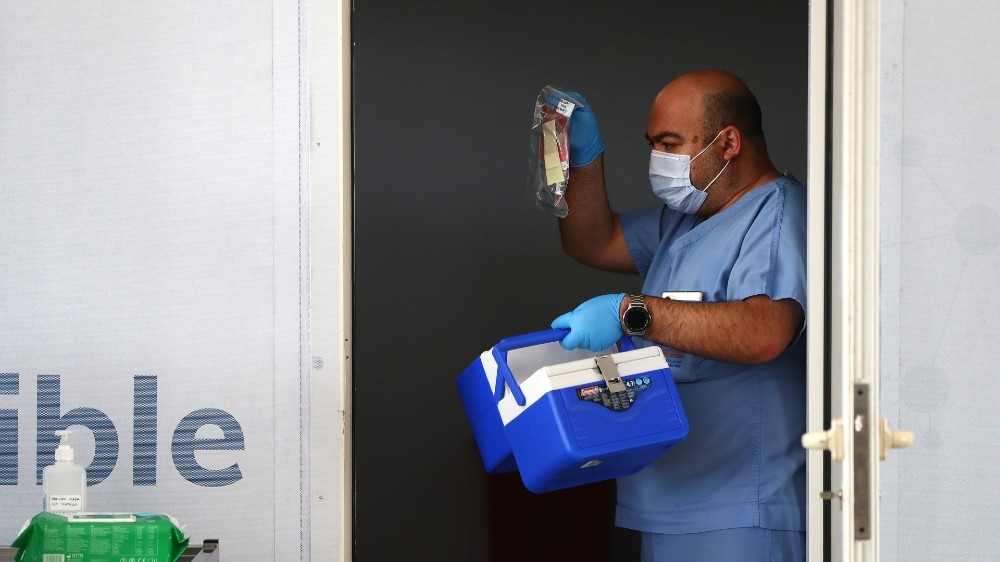
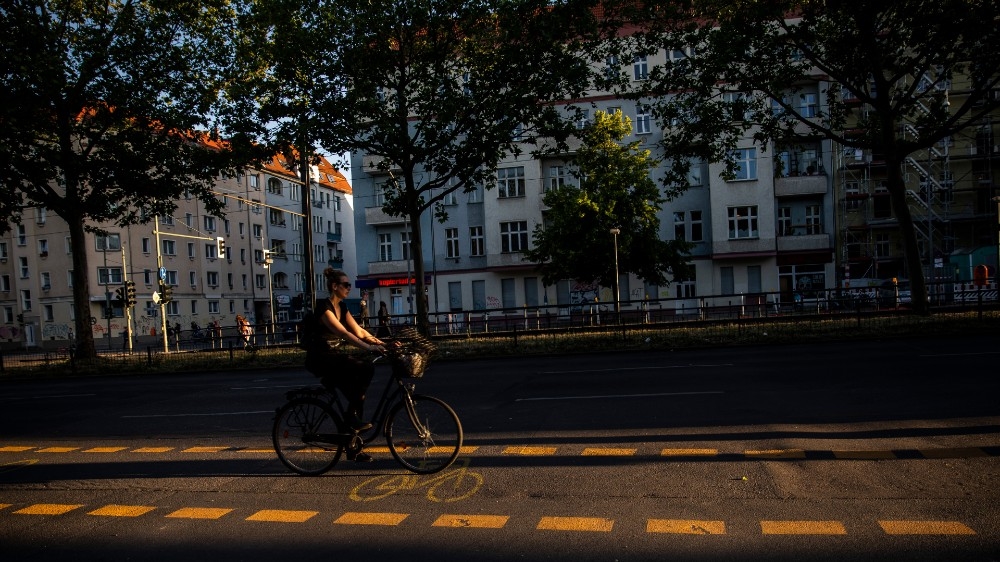
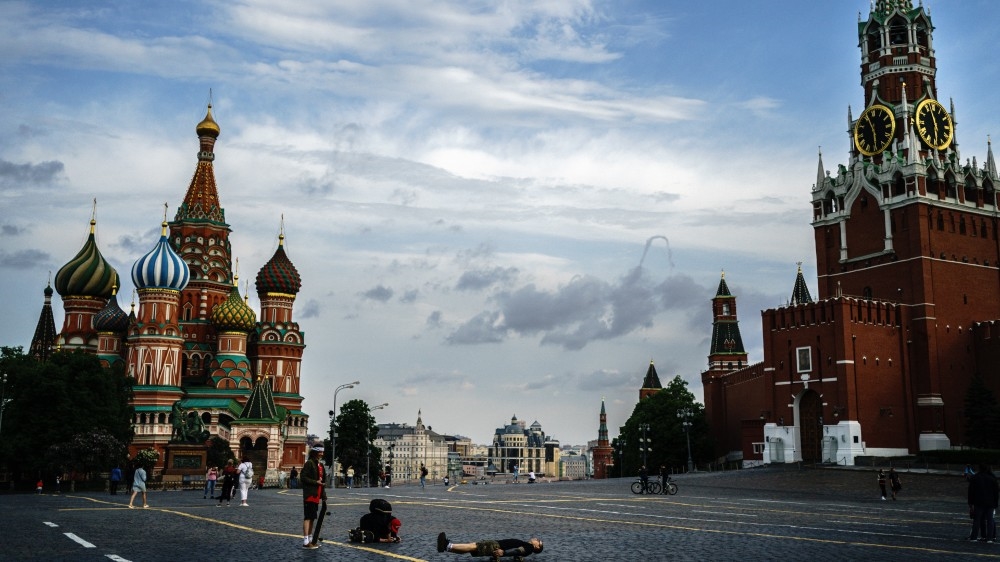


![Airplanes of German carrier Lufthansa are parked at the Berlin Schoenefeld airport, amid the spread of the coronavirus disease (COVID-19) in Schoenefeld, Germany, May 26, 2020. [Fabrizio Bensch/Reuters] The spread of the coronavirus disease (COVID-19) in Germany](https://www.aljazeera.com/mritems/Images/2020/5/30/3a77c00cacbc4144a6f42b6d959311ae_18.jpg)
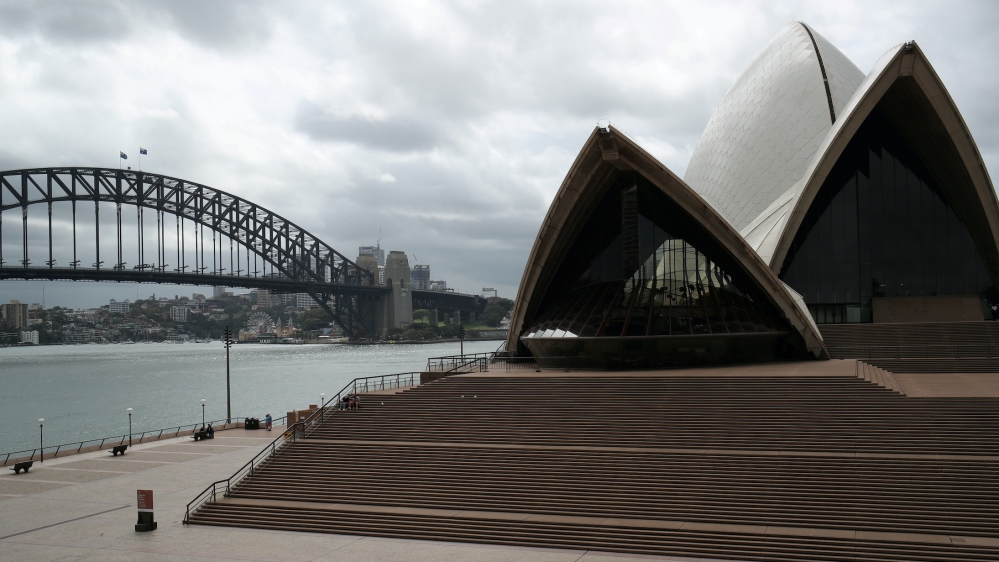
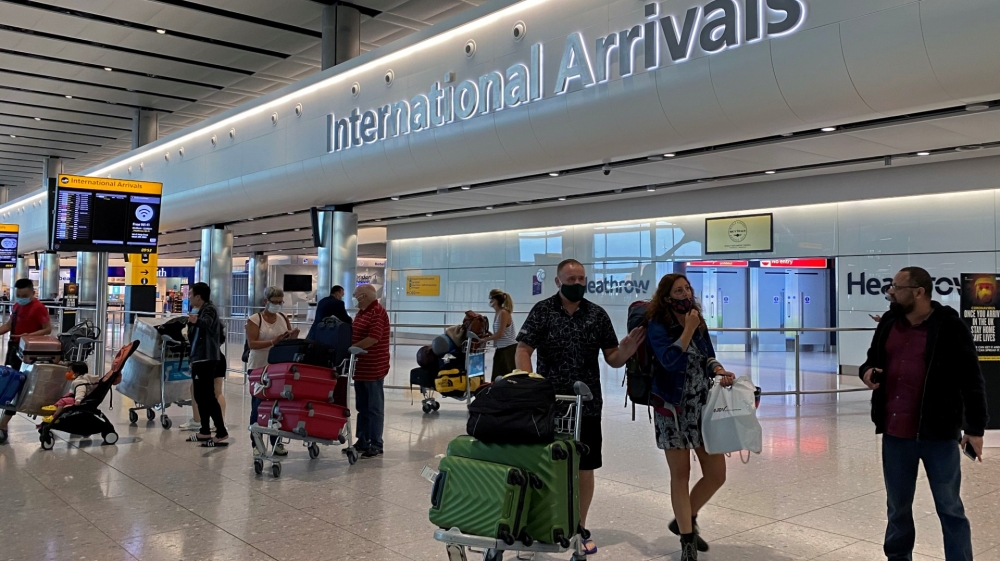
![A patient suffering from the coronavirus disease being treated in the Intensive Care Unit (ICU) at a field hospital in Guarulhos, Sao Paulo state, Brazil [Amanda Perobelli/Reuters] Brazil Hospital](https://www.aljazeera.com/mritems/Images/2020/6/2/068ad825cdd64d37a6167c522c0753f6_18.jpg)
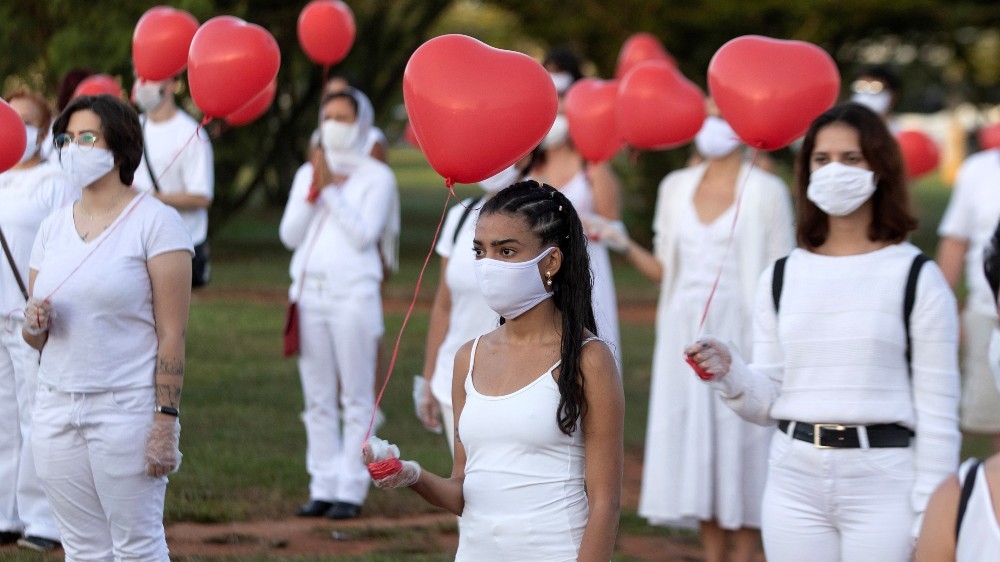

No comments:
Post a Comment